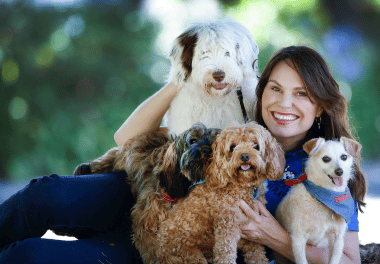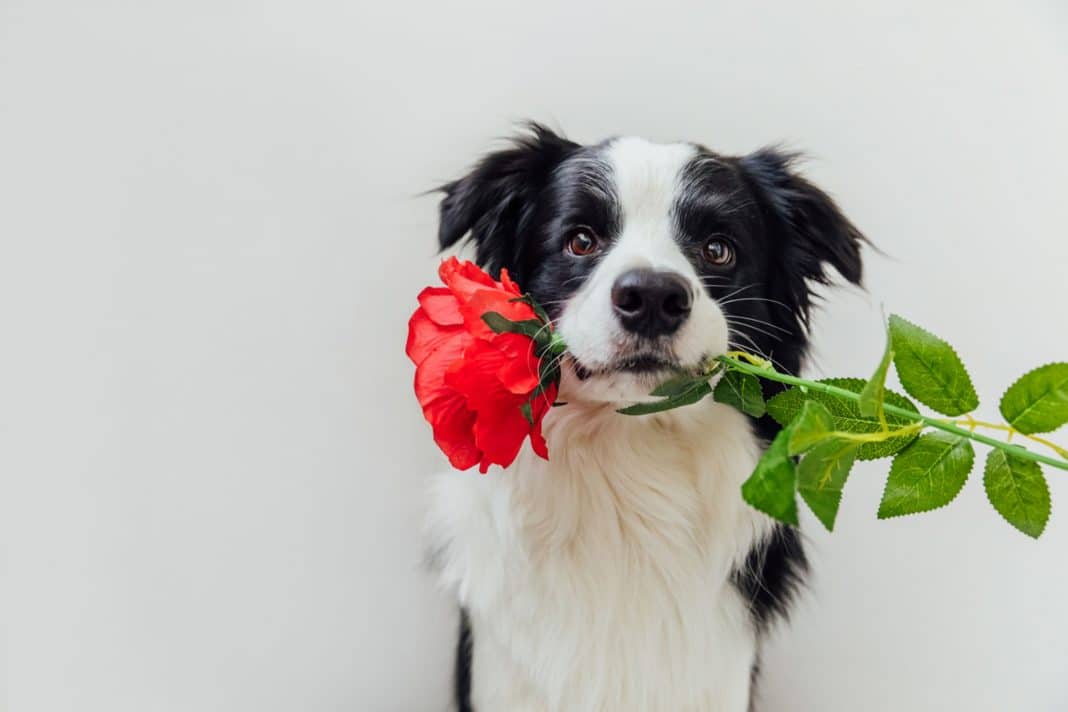With the celebration of love just around the corner, some people may be thinking a furry, feathered or scaly companion might be a better choice than human company. CW has spoken with an animal expert to get advice on how to find your ‘pawfect’ love.
Dog behaviourist, PETstock ambassador, and host of Pooches at Play, Lara Shannon says, sadly, not enough people do proper research when looking for a pet. They can then end up with an animal that doesn’t suit their lifestyle, leading to the animal being given up or living in less than ideal situations.
“They think ‘oh, the kids have been harassing me for guinea pig or a rabbit or a dog or puppy’ and they don’t realise that there’s time involved in taking care of them and finances as well,” says Ms Shannon.
When adding someone new to your life, you need to consider how they will fit into your schedule and work arrangements. Ms Shannon suggests that for someone who is out of the house for many hours a day, a smaller companion may be best, like a guinea pig or rabbit that can be let run around the house of the evening, whereas a dog is not bred to be spending eight-plus hours a day on their own. You need to ensure that you have the appropriate amount of space to keep the animal comfortable and content.
“Surprisingly, some breeds that people might think need a lot of room, like a greyhound is perfectly happy in an apartment as long as they get out and have their walk every day.”
Ms Shannon says it is important to take into account how the new family member will fit into every aspect of your lifestyle. For example, if you go away a lot, maybe a smaller animal you can drop off to someone’s house is better than a dog that may stress while you are gone. Whether or not you have or want children, what breeds would be okay with them, how much it will cost to feed and care for the animal and whether it fits into your budget.
“How active you are, do you like to get out every day and walk and run? Then a great active dog is perfect for that. If you’re more of a couch potato then maybe a cat or one of the more companion-bred breeds like the pug, they all still need exercise. It’s making sure that you understand the individual traits of different breeds within a species.”

Something else that may be useful when you are working out what species is right for you is understanding your love language. Ms Shannon says The Five Love Languages by Gary Chapman, which has been circling around many relationship counsellor offices, self-help venues, and love connections for years now, can be applied in this context, too.
“It does actually translate, I think, as do many others, to the language that we have with our pets.”
She notes that each pet has its own personality and traits. While it can be hard to generalise about all breeds being the same, we can get some indicators from the species’ quirks and personality traits. Again, if a species suits your language, you still have to do the research to make sure it also fits your lifestyle.
Our five love languages fall into: words of affirmation, acts of service, physical touch, receiving gifts, and quality time. Ms Shannon described how our most common companions fall into these categories of giving and receiving love.
Dogs, our closest companions, tick a few of the love languages. Ms Shannon says if you are in the market for a dog you are probably the kind of person who is going to be hands on, you have time and energy, your love language is a demonstration of affection, physical touch. She says time together is another important one for our canine companions; they thrive on quality time spent outdoors and with their loved ones. We all know they also love words of affirmation and being told they are a good boy/girl.
“Also I would say acts of service is a good one for dogs in that they love a belly rub. They love being treated by you and other people,” she says.
Our feline friends are quite suited to the acts of service, they are slightly more haughty than they canine counterparts, want to know what is in it for them, and what can we do to make their life better. Ms Shannon says along with devoted service, cats love words of affirmation, being told how beautiful and clever they are.
“There are different breed types within populations that are more affectionate, so they do want those physical signs of love.”
More than a relationship built on love, fish are our friends with benefits. They like to know people are around, and are largely waiting to receive gifts, mainly in the form of food. The low-maintenance silent companion that is there if you want to engage with them, there for you when it is needed.
“A few words of affirmation down the fish bowl and your friendly fish will come up and see you, they watch you,” she says.
Pocket pets seem like the easy option, however Ms Shannon says a lot of people misjudge the time and attention that rabbits and guinea pigs require, resulting in a lot of them being surrendered. They require both an abundance of physical touch and quality time, and need more than being left in a hutch in the backyard.
“Our bunny rabbits and our guinea pigs love quality time, they love physical touch and they love some veggie receiving gifts. Some little treats for them go a long way,” she says.
Seeking a scaly housemate? Ms Shannon says you can win them over with acts of service, making sure they have a nice warm enclosure in which to bask away their days. They enjoy receiving gifts, especially in the form of food, while they don’t require much of the other love languages.
“They’re probably not in need so much of the quality time but they certainly do like to have us around, maybe not so much physical touch.”
Most people don’t realise birds such as chickens require a lot of time; Ms Shannon says they could be some of the more high-maintenance pets and relationships. She says all birds need words of affirmation, particularly those that can learn words, they need them to keep their brains stimulated. Acts of service are important to feathered friends, they need to be given access to space to roam, they don’t mind physical touch in a gentle pat, but prefer to not be chased.
“They get very attached and some of the parrots can live up to 100 years of age so you sometimes need to have a bit of a plan in place for as you get older because often they’ll outlive the person, so, they very much need quality time,” she says.
Buying a pet for yourself is one thing; buying an animal as a gift is another. Ms Shannon says surprise pet presents are a big no. Getting a pet requires a lot of research, planning, and preparing your home and yourself for a commitment to the length of the pet’s life. However, if it has been an ongoing discussion with the intended recipient, a decision that has been researched and agreed on, and you just want to make it a special occasion, then that is fine.
“The person knows what they’re doing, has the lifestyle to suit the animal, and has already prepared themselves for an animal. So it’s really just an occasion, you’re going to be doing it anyway.”
For those in newer relationships who may be gifting a pet, Ms Shannon says that although it could be seen as a downer, it’s important to think about what happens to the pet should the relationship break down.
“You need to have a very frank discussion about, should things not work out and should love fade over time, then definitely have some written plans as to who has ownership of the pets,” she says.
Find out more about Lara Shannon and her work at poochesatplay.com
Meet your pawfect match at rspca-act.org.au
Get all the latest Canberra news, sport, entertainment, lifestyle, competitions and more delivered straight to your inbox with the Canberra Daily Daily Newsletter. Sign up here.



